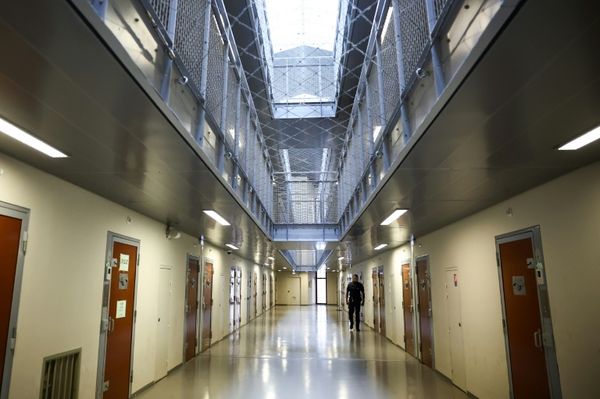
Kamala Harris dodged a question on Sunday on if she voted for California’s Proposition 36, a controversial ballot measure that increases sentences for certain drug and theft crimes.
“I am not gonna talk about the vote on that because, honestly, it’s the Sunday before the election and I don’t intend to create an endorsement one way or the other,” the US vice-president and Democratic presidential nominee, who votes in California, told reporters at a rally in Detroit.
As San Francisco district attorney and later as California’s attorney general, Harris’s record on criminal justice has come under intense scrutiny, with her opponents saying she has a history of pivoting on criminal justice depending on the political circumstances.
If passed, Proposition 36 would see people who fail to complete drug treatment jailed, increased punishments for some theft and drug crimes – including turning misdemeanors into felonies – and requires courts to warn people convicted of selling or providing illegal drugs to others that they can be charged with murder if they keep doing so and someone dies.
The California legislature’s non-partisan fiscal and policy adviser has said the measure will increase the state’s criminal justice costs by requiring some people who now serve their sentences at the county level to serve them in state prison, and by increasing state court workloads.
“In total, Proposition 36 would increase local criminal justice costs, likely by tens of millions of dollars annually,” the adviser board has said.
The measure has become a deeply divisive issue as major California cities, including San Francisco and Los Angeles, struggle to contain high rates of homelessness and drug addiction and attendant rates of crime.
Beyond the ballot measure, the San Francisco mayor, London Breed, a Democrat, is in a difficult re-election fight against challengers who say she has allowed the city to spiral out of control.
The moderate Democratic mayor faces four main challengers on the 5 November ballot, all fellow Democrats, who say Breed has squandered her six years in office. They say she allowed San Francisco to descend into chaos and blamed others for her inability to rein in homelessness and erratic street behavior, all while burglarized businesses pleaded for help.
Crime data shows the San Francisco Bay Area and Los Angeles saw a steady increase in shoplifting between 2021 and 2022, according to a study by the non-partisan Public Policy Institute of California.
Across the state, shoplifting rates rose during the same time period but were still lower than the pre-pandemic levels in 2019, while commercial burglaries and robberies have become more prevalent in urban counties, the study says.
Proposition 36 also represents a rollback of an earlier ballot measure, Proposition 47, that sought to decrease prison overcrowding by reducing some felonies to misdemeanors.
Many law enforcement officials have blamed that 2014 initiative for increasing homelessness and crime in the state.
Harris, in 2014, also declined to take a position on Proposition 47, and reportedly laughed when she was asked if she would support the legalization of marijuana for recreational use. She reversed that opinion in 2018 and now says she feels “strongly people should not be going to jail for smoking weed”.
“I just think we have come to a point where we have to understand that we need to legalize it and stop criminalizing this behavior,” Harris said last month during an interview on the podcast All the Smoke.
The Los Angeles Times recently argued against the new ballot measure, saying that it could return the state to the era of “three strikes and you’re out” that saw repeated convictions for some relatively low-level crimes, accompanied by lengthy sentences.
“The problems the measure claims to address – retail theft, drug abuse and homelessness – are to some degree intertwined,” the paper said, adding that the proposition in effect asked asked voters to approve current police tactics.
“Police could stop petty thieves now if they made misdemeanor arrests, as they can and sometimes should under current law. But they don’t, because they argue it’s not worth their time,” the paper said.
Associated Press contributed to this report







